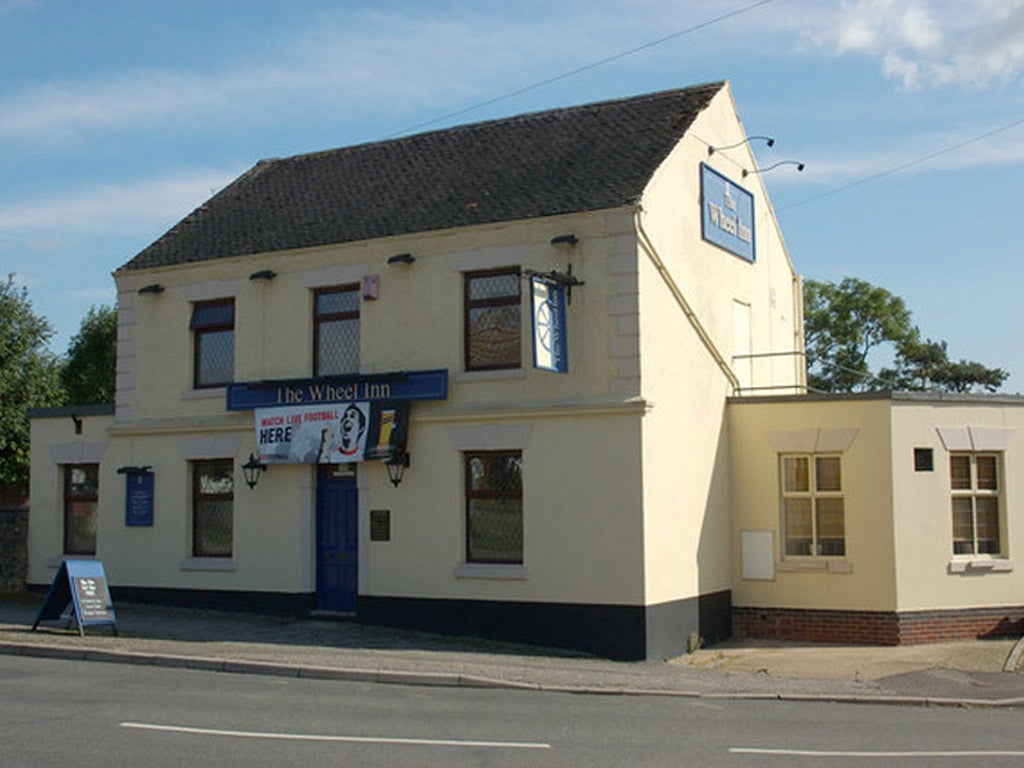Derbyshire village launches "casks not caskets" campaign to stop pub becoming funeral directors
Simon Usborne raises a glass to community-run boozers

It is, depending who you speak to, the last nail in the coffin of the traditional English pub, or a messy bar brawl that reveals more about rural nimbyism. The battleground: Findern (population about 1,700) where the last surviving boozer is being turned into a funeral parlour.
That is unless Mark Gregory can revive it. The road builder has lived in the Derbyshire village for 30 years, sinking countless pints at the Wheel Inn. He's now part of a "casks not caskets" campaign to save it from Murray's, a family-run funeral directors branching out from neighbouring Staffordshire.
"There's a lot of opposition here and genuine anger," Gregory says. "I'm aware of people who have moved to the village recently who say they wish they hadn't bothered. They expect a village to have a pub and that's been taken away. Even I'd consider moving out after 30 years here. This is our heritage."
Murray's might welcome Gregory's departure. The funeral directors, which has one small premises in nearby Burton-on-Trent, bought the Findern property last December from Punch Taverns, the pub operator. Such has been the reaction to the sale that Murray's has employed a public relations consultant to manage the fallout.
"I've never heard of such a backlash against what is a small funeral directors," says the spokesperson, who has the bearing of someone who might have been trained at Schillings or Carter Ruck. "This is a pub with a chequered history sold on the open market. Now we're seeing a coordinated campaign with posters, emails and threatening notes."
Gregory, 50, now wants to buy the pub from Murray's, which has no intention of selling. The spokesperson says his offer of about £300,000 "lacked credibility". Gregory realises that he is fighting a losing battle but now wants to make a point and warns he will disrupt building work at the site.
"It needs a lot done to it, lots of trades in there and I can persuade people they employ not to do the work – that kind of thing," he explains. Punch Taverns put the pub up for sale last September. Murray's made its offer in December. Why didn't Gregory beat them to it? "I would have shown an interest if I'd known what was going to happen," he says. "We understood that the building had to remain a pub for the rest of its lease."
Murray's disputes this claim but acknowledges that it has been caught up in a fight that is mirrored across the country. Pubs now close at a rate of 28 a week, according to the Campaign for Real Ale (Camra). Communities may apply to local authorities for special "asset of community value" status under the Localism Act, a measure that has saved hundreds of pubs (in Findern, the application was rejected).
"If you get the status, it gives you a stay of execution for six months," says Roger Protz, editor of the Good Beer Guide, which is published by Camra. "The pub can't be sold for that time, which gives locals the opportunity to raise the money to buy it." If they fail, or if the developer sits out the six months, pubs variously become Tescos, flats – or funeral parlours.
Tessa Blunden used the legislation last year to help save a pub in South-east London. The solicitor now helps to run The Ivy House in Nunhead, which was due to become flats.
But the law isn't enough, she says: "Developers would find it more tempting to sell to landlords if they knew planning protection for pubs was more robust."
Too late for the Wheel Inn. Later, David Barke, the boss at Murray's, emerges from behind the spokesperson and is clearly reeling in the face of the campaign against him.
"All I've done, with the best of intentions, is looked at a very tatty, rundown building and decided I could give it a new lease of life," the funeral director says.
Gregory admits that his local had seen better days before last orders were called. Nostalgia clearly plays a role in the campaign. "It's got a lot of memories; of people who are no longer with us," he says. "We had a football team that used to go and drink in there." His nearest local is now a bus ride away. "But there aren't many buses now," he adds.
Join our commenting forum
Join thought-provoking conversations, follow other Independent readers and see their replies
Comments